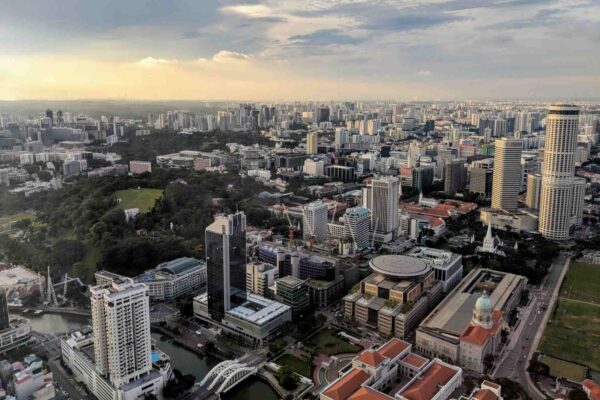
Dear Mindef, you’re delusional, and you just don’t get it. It’s not about having more inquiry committees, having more reviews, or promising to do better. We want results. It’s the results that matter. We mean zero avoidable, needless, deaths of our soldiers. Even one such death is just simply unacceptable.
It’s really sad to learn of the events surrounding the recent death of Corporal First Class (NS) Aloysius Pang. His death follows those of Corporal First Class Liu Kai, Corporal First Class Dave Lee, and Third Sergeant Gavin Chan, all occurring in the last 16 months or so. They don’t include freak accidents and suicides, and deaths in other branches of National Service.
There are even more such cases if one were to go back further in the not-too-distant history. These are accidents that are easily avoidable, preventable, and should not have happened at all.
I was quite disturbed about the earlier deaths of Private Dominique Sarron Lee and 3rd Sergeant Tan Mou Sheng in 2012. Protocols were in place, but they were blatantly disregarded. Something is clearly very wrong with the Singapore Armed Forces (SAF).
Mindef keeps speaking about forming committees of inquiries, their purported emphasis on safety, but the outcomes tell us a very different story. Time and time again we see safety lapses happening. I feel certain these deaths are just the tip of the iceberg, a hint of serious underlying issues that plague the SAF.
I was initially uncertain what to make of Aloysius Pang’s death. Mindef appears to have planned well-timed bite-sized updates, perhaps their PR strategy to lessen public outrage.
We still don’t know if we’re looking at safety breaches in this incident, and if this had been an easily avoidable accident. However, the careful language they’ve adopted in their public statements suggest that there is more they know than they want to tell us just yet. That the incident, for example, involved a crushed injury could have been pretty clear as a matter of fact from day one, but took quite a while for us to come to learn about it.
Sidenote: The government should understand that their penchant to use clever language is leading the public to lose trust in their public statements. I’m referring to incidences like train collisions being described as “come into contact”, or an armoured vehicle overrunning and crushing a Land Rover being described as one having reversed into the other. They are not untrue, but clearly they are grossly misrepresenting the facts. Such statements are now leaving the public to find deeper meaning in the words, possibly leading to more misinformation.
Operating heavy machinery, such as in this incident, is always dangerous. There must be protocols to safeguard safety. In this case, I do wonder if the SAF has appropriate safety measures in place. For example, when Major-General Goh Si Hou, Chief of Army, says that technicians are trained to move out of the way and find a safe space when the gun barrel is lowered, I question if that finding of a safe space is something adhoc or if there is a predetermined spot to move to. The former suggests that something is lacking in their operational procedures.
I understand, accidents happen. Accidents can happen just driving down a road, and some of these accidents lead to deaths. We cannot prevent all accidents. However, surely we must try, and aim towards eliminating easily avoidable accidents.
The question for Mindef is if they have truly done their utmost to prevent accidental deaths of servicemen under their charge? Do they truly believe in safety in their heart?
We are being very reasonable here. I am not faulting Mindef for accidents that are tough to prevent, such as Lance Corporal Tan Tai Seng’s death resulting from being hit by a falling tree while waiting to enter a training area. The many other cases at hand here involve lack of safety protocols and violation of safety protocols.
Do the safety timeouts, do the safety reviews, do whatever it is they have to do. What we really care, especially parents with children who are and/or will have to serve National Service, is to see results.
When asked what he had to say to parents, seeing yet another training death, the Chief of Defence Force could still dare talk about the SAF having a good system. It’s not the first time we’re hearing this. Someone has died, but they have a good system, and that nothing is inherently wrong. Can I ask Mindef and the SAF if our soldiers dying unnecessarily as part of peace time training or operations is part of their design of a good system?
Does the SAF’s idea of a good system include accepting some avoidable, unnecessary, deaths of soldiers from time to time?
In fact, Chief of Defence Force even wants to talk about improvements they’ve made in their system. That, in the same press conference on Aloysius Pang’s death.
Their PR already reflects an inherent disinterest in actually doing something impactful, something that will produce results. I cringe watching the body language of the top commanders in the press conference. They are clearly better at giving commands than at communicating.
Safety and the training/operational needs of the SAF are not orthogonal objectives. Mindef and the SAF must stop deluding themselves. Their system has failed. Obviously. They seriously need help fixing their organisation. We don’t want to see even one more unnecessarily death.
View Comment Policy